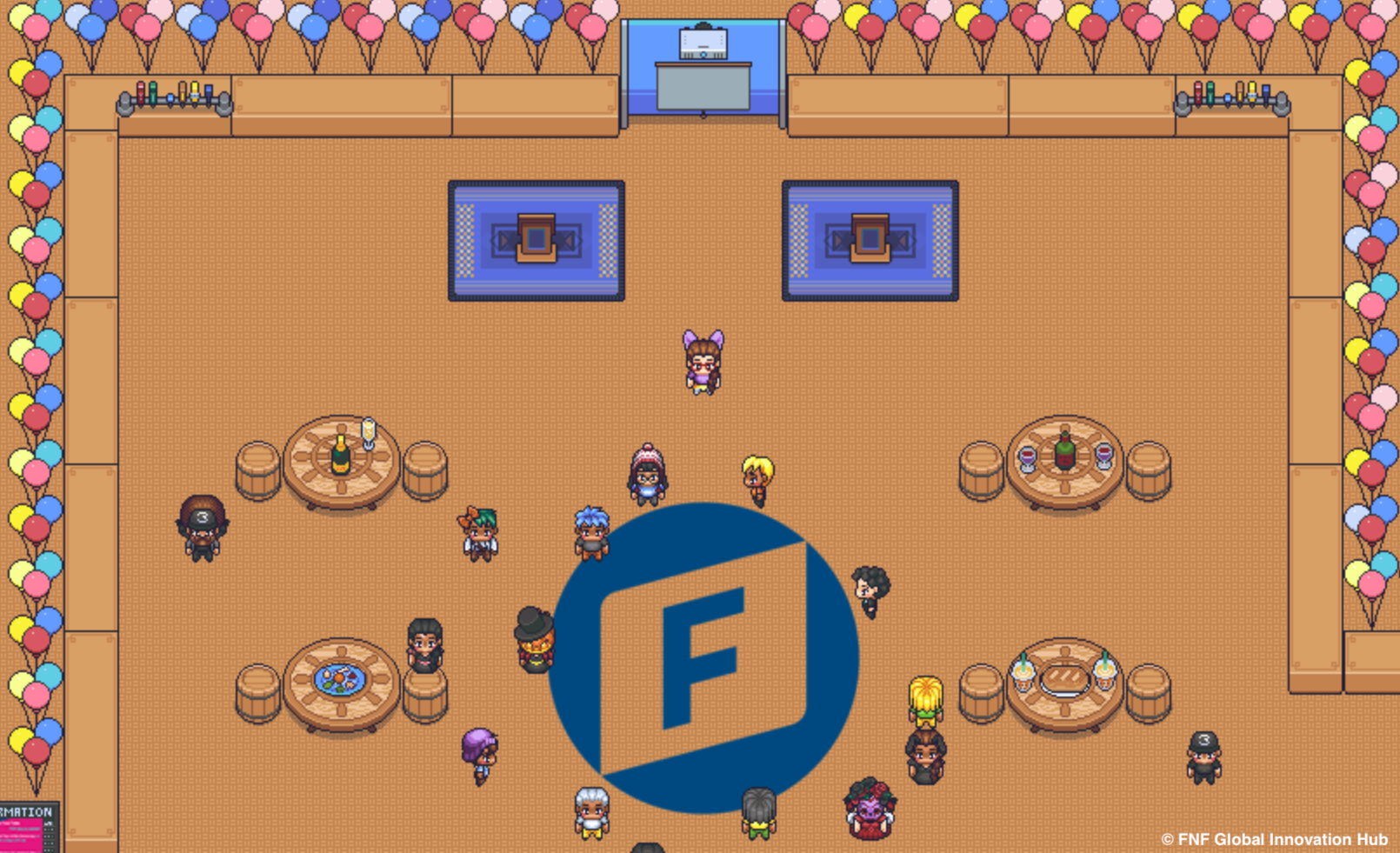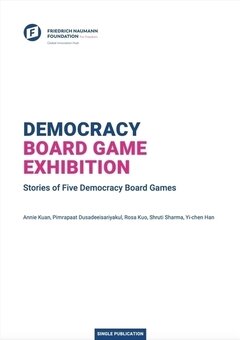Innovation for Democracy
Democracy Board Game Festival – How Games Can Push for Strengthening Democracy

Group photo taken at the virtual opening ceremony of Democracy Board Game Festival on Gathertown
© FNFThe education and discussion on democracy and social or political issues are very important, but the process can sometimes be a bit too serious. Can we approach these topics in a different way? The answer is yes. With games, people are safe to explore all kinds of possibilities for advocating democracy and simulate real life problems that cannot be easily solved. Games are not only fun, but they can also be educating and inspiring.
FNF Global Innovation Hub launched its first virtual Democracy Board Game Festival on August 15th 2022, attracting around 300 people to the three-week exhibition on Gathertown. During the exhibition period, aside from the opening and closing ceremonies, we also organized game tours for the five featuring board games: Sim Democracy by FNF Thailand Office, Migrant Worker Life by 1095 Culture Studio, Home Play by Taiwan Gender Equity Education Association, The Poll by Civic Games Lab and FNF India Office, and Open StarTer Village by Open Culture Foundation.
Change of perspectives with games
At the event on August 24th, Ms. Annie Kuan from 1095 Culture Studio shared with us her experience in training police officers with Migrant Worker Life in Taiwan. Due to the lack of language ability and understanding of migrant workers’ cultures, basic-level police officers often don’t know how to properly approach them on the street or address their problems. This game allows players to walk a mile in migrant workers’ shoes, and experience the day-to-day challenges they may encounter.
At the beginning of the training, some police officers laughed because they thought it was funny to see the scenarios that they’ve dealt with for hundreds of times. However, the game put the police officers in the shoes of migrant workers, reflecting the other side of their life that police officers don’t usually see. In the end, some police officers were even very emotional, saying that they didn’t know how hard the life of a migrant worker is, and thereby started thinking about how to improve their approaches of interacting with migrant workers. It is amazing how the police officers’ mindset can change by simply playing a game. Also, the game helps to discover that the police need help as well. They need resources to acquire more training on learning the languages and cultural backgrounds of migrant workers. With Migrant Worker Life, 1095 Culture Studio hopes that any prejudice or discrimination against migrant workers can gradually be eliminated.
Everyone can play a part
Clair Cheng, Project Manager from Open Culture Foundation, shared with us their newest game, Open StarTer Village, which is developed with the support from FNF Global Innovation Hub, at the event on September 1st, describing open source as sharing a recipe. With the shared recipe, everyone can not only cook the same dish by themselves, but also add other ingredients to create more delicious dishes. Based on this concept and according to the CC-BY-4.0 license, all the elements of Open StarTer Village are public and free to download online.
Through this game’s diverse characters, OCF wishes to convey that people from different disciplines can work together and contribute to an open-source project, alleviating people’s fear of technology. Moreover, the game also shows that the concepts of open source, open government, and open data are intertwined, and can actually benefit each other.
From Sim Democracy and The Poll, we also better comprehend the concept of participation. The two games simulate real-life scenarios in the political world, allowing players to gain sufficient knowledge on public participation in democracies. By doing so, politics can become something that every citizen can take part in, instead of only the elites or the rich.
What the future holds for these board games
Digitalization is trending, but the participating organizations, such as 1095 Culture Studio and Taiwan Gender Equity Education Association, expressed that it is not so easy to digitize these games due to lack of resources. For the time being, hard copies are more practical since most of the promotion and trial plays are conducted face-to-face. Also, Mr. Abeer Kapoor, founder of Civic Games Lab and the Poll, mentioned that when the games are online, communities and people without much access to the Internet will then be excluded. However, many do intend to introduce these games to other countries, such as TGEEA with their English, Thai and Japanese versions of Home Play.
The Democracy Board Game Festival not only introduced these brilliant board games to the public, but it also facilitated the cooperation and exchange between these participating organizations. With games, more people can hopefully engage in discussions and innovations of various social and political issues for a better democracy.
For those who missed our Democracy Board Game Festival, feel free to download the publication below and learn more about these board games!

